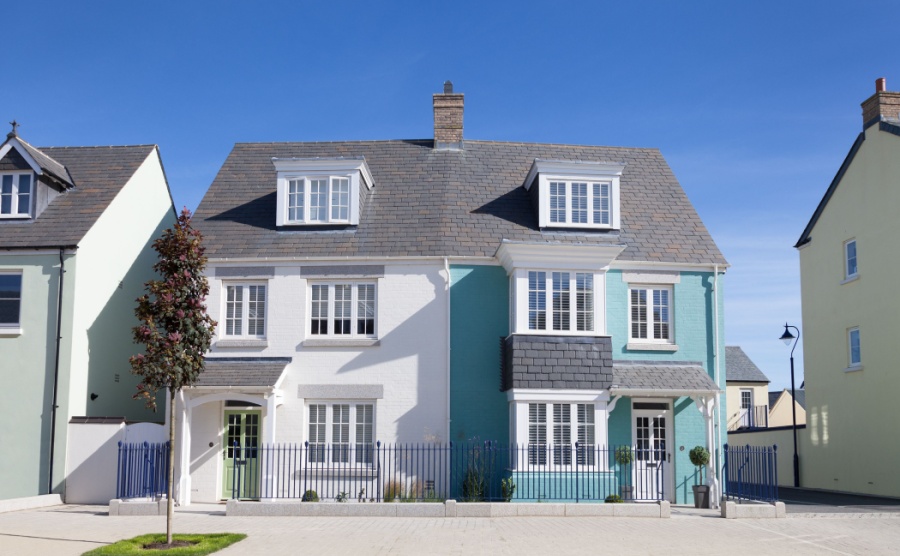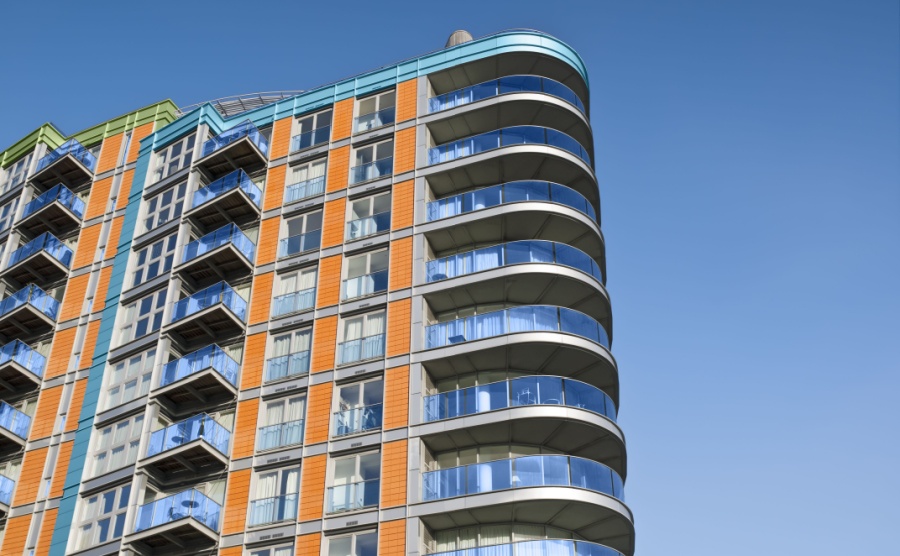The good news: buying property in the UK is safe and buying costs are low. The bad news? There are quirks to the UK home buying process, that overseas buyers need to be aware of.
Serious about purchasing a UK property in 2025, whether as an investment, second home or your new primary residence? There are no restrictions on foreign nationals owning real estate here, but the market is competitive and the process isn’t always straightforward for first-time buyers.
To help get you started, here’s a snap guide to preparing for a property purchase in the UK as a foreigner.
Research and planning
The first step is researching locations and property availability according to your budget. You need options that align with your objectives, whether you’re buying for lifestyle, primary residency or investment reasons.

Semi-detached English homes
London is the preferred destination for most people arriving here, but property buyers will need to be affluent. With its world-class lifestyle and leisure offerings and diversity of property types, the average property price in London is £677,000. Its buoyant property market makes London especially attractive to investors shifting assets out of their own currency into a sterling-backed property.
At the pinnacle is Prime Central London (PCL), with areas like Mayfair, Knightsbridge, Chelsea and Belgravia offering exclusivity, strong rental demand and capital appreciation. Elsewhere, emerging hot spots such as Marylebone and Fitzrovia – which also form part of PCL – offer greater value with potential for future growth.
Being an easy commute from the UK capital makes the Home Counties – including Surrey, Sussex, Hertfordshire, Cambridgeshire and Oxfordshire, the South West – including the Cotswolds, and increasingly pockets in the Midlands attractive to buyers looking for a less urban lifestyle closer to countryside but accessible to London.
Other UK cities where foreign investors could explore opportunities include Manchester, Birmingham, Reading, Brighton, Liverpool and Leeds.
Freehold versus leasehold
In the UK, leasehold is a common form of residential property ownership for apartments or converted flats. Houses owned through a shared ownership scheme are typically leasehold too. Otherwise, freehold is the norm when purchasing a house or any type of detached property or land – some flats are sold with a shared freehold, but these are not common.

Beautiful flats, but beware potential leasehold terms
When buying leasehold, be sure you understand all the terms of the lease, including your obligations and ongoing costs as a leaseholder, as well the obligations of the freeholder. Typically, leaseholders will have service or maintenance charges and often ground rent to pay. Their lease will likely state they also have to contribute towards structural repairs of the whole building and communal areas.
Remember these costs will eat into your rental return. Some terms, such as the length of the lease, will be negotiable. Your independent lawyer should be able to advise about all of the above.
Get your buying team together
Key to a successful property purchase in the UK is having the right specialists to help you. The most valuable people are your property agent or dedicated buying agent, your independent conveyancing solicitor, your currency specialist if you need to transfer foreign currency into sterling and a mortgage broker if buying with finance.
The value of a buying agent
Your property agent will be your eyes and ears on the ground. You may choose to engage with a number of estate agent who cover your preferred area or areas. Or, it often works better for foreign purchasers to appoint a single buying agent, who will scour the market, liaise with different estate agents and use their network to search for suitable properties.
A good agent’s local knowledge, professional experience and extensive contacts are invaluable to overseas property-buyers who are unfamiliar with the UK market.
Your independent solicitor
Your independent solicitor will be vital in protecting your interests, advising you throughout the transaction and overseeing all the paperwork right through to completion and beyond.
As a bare minimum, they’ll do all the necessary searches and due diligence on any property you consider purchasing, run through any possible issues with you, check contracts and ensure you are happy with all the conditions and overseas any payments. Another important part of their role now is anti-money laundering compliance and ID checks.
Currency specialist
Your currency specialist, such as Smart Currency Exchange, is essential for exchanging and transferring your source funds from a foreign currency into Sterling, enabling you to complete the purchase and maintain the property going forward.
Opening a no-obligation account before you start your search gives you plenty of time to discuss your purchase and timescales with a member of the experienced currency team, as well as plan the most suitable transfer options for you. Protecting your money from exchange rate movement after making an offer, which is done using a forward contract, is a popular tool with international property-buyers.
Mortgage broker
For those buying with a mortgage, to use a broker to find you the best deal rather than approach each lender individually. Not only does it save time, but a broker will be familiar with UK mortgage market and the best lenders for foreign borrowers and therefore be able to match you with the most suitable deal according to your financial profile.
Budget for UK buying costs
A property transaction in the UK attracts fees and taxes, the key ones being Stamp Duty Land Tax (SDLT), legal fees (including Land Registry fees and disbursements), mortgage fees and the cost of a survey.
The tax payable by the buyer of a freehold or leasehold property in the UK is Stamp Duty Land Tax (SDLT), which is levied in bands. As of 1 April 2025, the first £125,000 of a property purchase that is your only home is tax free in England and Northern Ireland. After that, SDLT is charged at 2% on any portion between £125,001 to £250,000, 5% on any portion between £250,001 to £925,000, 10% between £925,001 to £1.5 million and 12% on anything over £1.5 million.
If purchasing an additional or second home, a 5% surcharge is levied to each band (this starts with the first £125,000 being charged at 5%, the final band being 17% on any value over £1.5 million). Note, rates and bands are different in Wales and Scotland.
SDLT surcharge for foreigners
In addition, since 2021 a surcharge of 2% on top of the standard SDLT rates is applicable to non-resident purchasers of residential property in England (and Northern Ireland) that is valued at more than £40,000. Spending at least 183 days during the 12 months leading up to the completion could make you UK tax-resident and exempt from the surcharge.
As a guide, a non-resident foreign national buying a second home in England for £500,000 currently will pay £50,000 in SDLT. If the property will be the only home they own, SDLT for the same property will be £25,000. With any of the above, get professional tax advice before making any decisions.
Solicitor’s, survey and mortgage fees
You’ll also need to factor in your solicitor’s fees, ranging typically from £1,500 to £2,500, depending on the value and complexity of the purchase. On top of that, your solicitor will pass on the costs of other disbursements, such as searches and Land Registry fees, which shouldn’t total more than £1,000.
Getting a professional survey is advisable when buying a resale property. In the UK there are three grades accredited by the Royal Institution of Chartered Surveyers (RICS). These are Level 1 (Basic or Condition survey), Level 2 (or Homebuyer report), often with a valuation and Level 3 (Building or Fully Structural survey), with typical costs being £400-£600, £500-£800 and £700-£1,000 respectively.
A property in good condition might require a Level 1 survey, but Level 2 is the most common. Note, a lender will do their own valuation if you are getting a mortgage – this is not the same as a RICS survey and should not be treated as a substitute.
Buying with a mortgage attracts associated fees. Typically, there will be an arrangement or product fee charged by the lender (eg. £1,000-£2,000), although this can be added to the loan. You may also be charged a booking fee (£100-£200) and the lender will require a valuation to be done (upwards of £250). You may also be charged a fixed fee by your broker (eg. £400-£500) although some charge a percentage-based fee or even no fees at all (they all get their commission from the lender).









